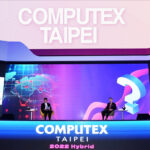ASIA ELECTRONICS INDUSTRYYOUR WINDOW TO SMART MANUFACTURING
Taiwan Taps New Trends to Harness AIoT Potential
The year 2023 marked the official end of the global emergency status for the COVID-19 pandemic as declared by the World Health Organization. Nonetheless, situations in the geopolitical environments continue to slow down many economies in the world.
Taiwan has been notable for its highly developed economic development and its electronics industry, particularly in chip design and semiconductor production, is one of the global juggernauts. However, its electronics industry, particularly memory products, has not bounced back in 2023 amid the continuing market slowdown.
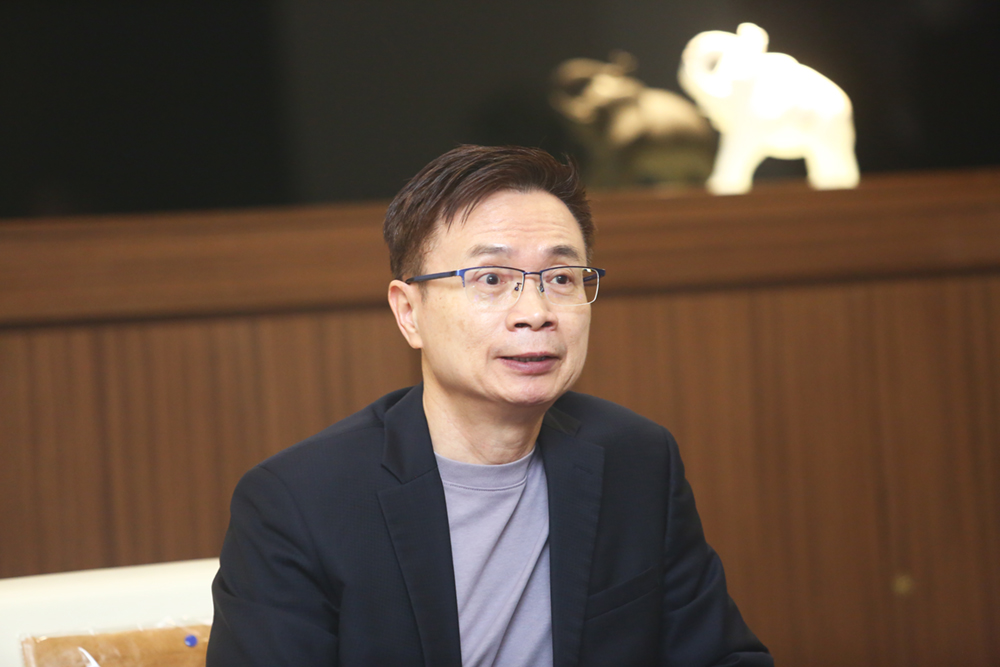
Nevertheless, James Huang, Chairman of the Taiwan External Trade Development Council (TAITRA), expressed optimism about growth in the industry’s electronics sector from 2024. Simultaneously, Taiwan is also harping on the potential of internet of things (IoT). Huang said the emergence of megatrends, such as 5G and artificial intelligence (AI), are making IoT even more intelligent, paving the way for AIoT.
Recently, TAITRA, along with the Taiwan Electrical and Electronic Manufacturers’ Association (TEEMA), concluded the 49th Taipei International Electronics Show (TAITRONICS) and the 6th Taiwan International AIoT Show (AIoT Taiwan). The co-located events brought under one roof Taiwan’s electronics equipment manufacturers at Taipei Nangang Exhibition Center in Taipei, Taiwan.
As one of the event sidelights, Huang sat down with journalists and tracked the prospects of the Taiwanese electronics industry.
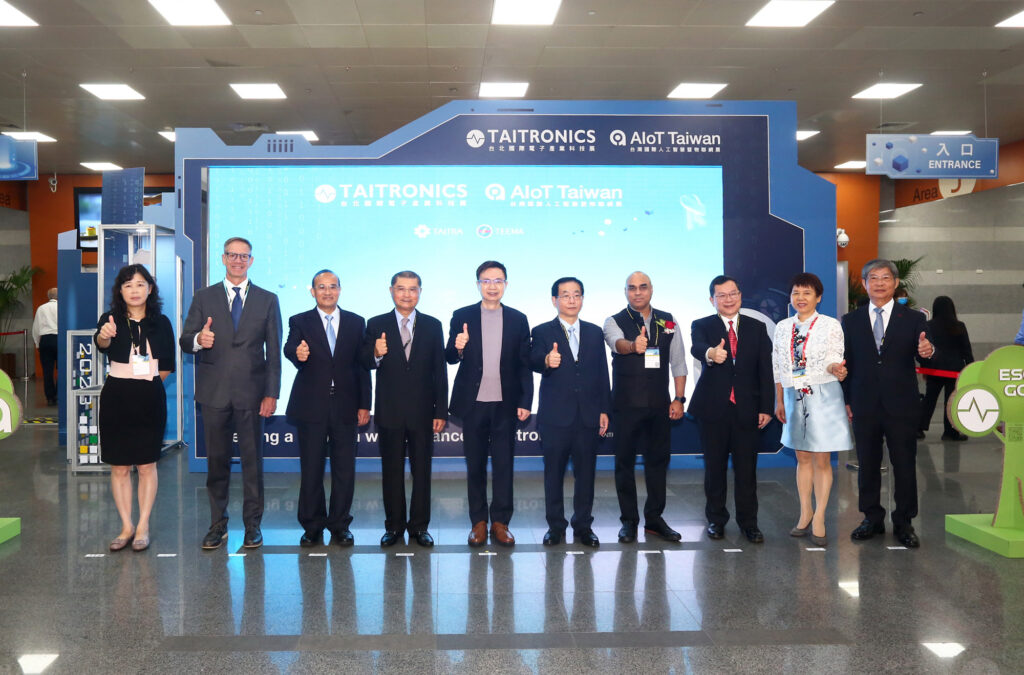
Question: What are the characteristics and advantages of TAITRONICS and AIoT Taiwan compared with other exhibitions?
Huang: In the era of the Internet of Things (IoT), various devices are becoming smarter with the help of computer chips. This is making things like smart cities, smart transportation, and smart homes more common. With the development of advanced technologies such as 5G and artificial intelligence (AI), the IoT is becoming even smarter, and we refer to this as the Artificial Intelligence of Things (AIoT).
The TAITRONICS and AIoT TAIWAN, together with the TPCA Show Taipei and OPTO Taiwan, cover everything in the electronic industry, from upstream PCB, optoelectronics, to downstream electronic components and measurement meters & instruments. Together, they nearly 600 exhibitors utilizing over 1,900 booths, marking a 20% growth in booth size compared to the previous year. It’s the go-to expo in Taiwan, the only one-stop-shop that offers a full suite of procurement services.
The exhibition this year emphasizes AIoT and sustainable industry applications, including seven themed pavilions aligning with industry trends and the latest applications, covering “Display in Future City,” “E-Mobility,” “Cloud and IoT,” “IisC IoT Integrated Service Center,” “LEO Satellite Industry,” “Renewable Energy and Energy Storage System Industry,” and more.
Question: Green energy technology is an urgent need of the times. Do you have any special support policies for brands or startups related to this field?
Huang: To achieve our energy transition goals and transform Taiwan into a safe, clean, and sustainable smart energy island, the Taiwanese government proposed the “Green Energy Technology Industry Innovation Plan 2.0”. This is being enhanced with four major visions: “Green Energy Promotion,” “Industrial Development,” “Technological Innovation,” and “Green Finance.”
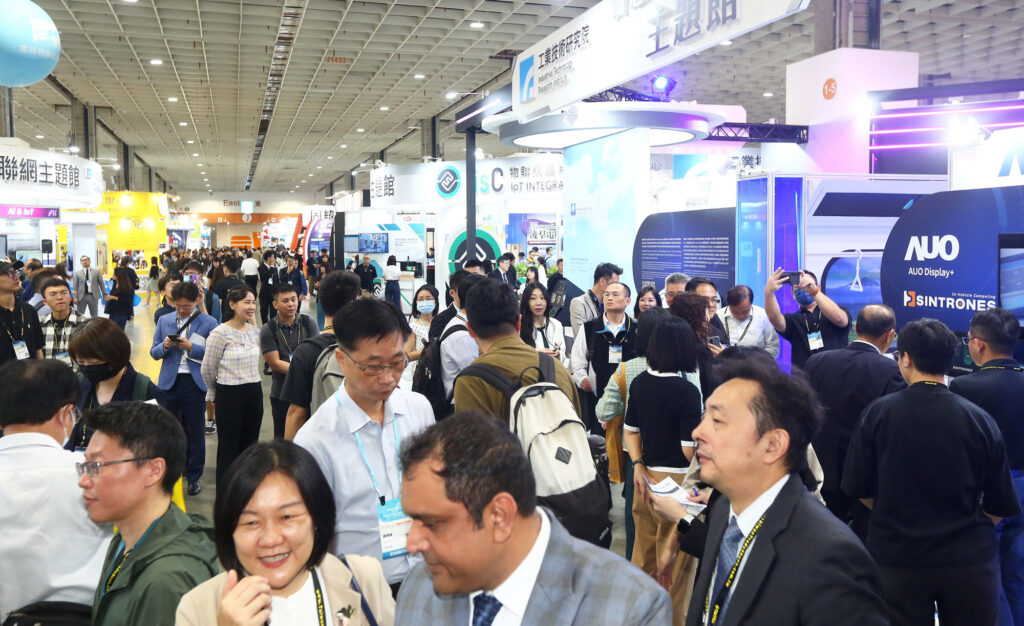
Aligned with policy directions, we’re continuously focusing on four key areas: energy conservation, energy innovation, energy storage, and system integration. Our strategy is around proactive energy savings, diverse energy creation, intelligent energy storage, flexible scheduling, and a robust market to propel Taiwan towards becoming a green energy hub in the Asia-Pacific region.
Question: What is the current state of the electronic industry in Taiwan?
Huang: The electronics industry in Taiwan mirrors IC design and semiconductor production. In 2022, the demand for consumer electronics took a hit due to the pandemic, leading to a slowdown in the global semiconductor market’s growth. Unfortunately, the market demand hasn’t bounced back in 2023. It is a year of decline, especially noticeable in memory products. Moreover, ongoing geopolitical tensions, particularly the U.S.-China trade friction, are affecting the semiconductor strategies of various nations.
2023 is a year for semiconductor inventory adjustment, and this inventory clearance will impact the global semiconductor market performance. Thus, leading to an estimated decline of 3.1%. A recovery is likely to happen in the latter part of the year, and we foresee a return to positive growth in 2024. Given this scenario, major companies are gradually adjusting their production and revising their capital expenditures, with memory chips being notably affected by market fluctuations.
Taiwan’s industrial strength lies in a robust ecosystem, ranging from semiconductor manufacturing to IC production and system assembly. To continue progressing, Taiwan is now focusing on combining solutions in the field of AIoT. This is an area where Taiwan can make even more significant contributions to human civilization.
Question: How is Taiwan preparing to be a supplier of E-mobility?
Huang: Taiwan is aligning with the global trend of achieving net-zero emissions. The goal is to have 100% electric vehicles in new car sales by 2040. Furthermore, the government has already taken proactive steps towards electrifying transportation, with a primary focus on electric vehicles.
The Ministry of Economic Affairs has laid out three major strategies. This include supporting local production to drive vehicle and component manufacturing and promoting the development of critical components to integrate into the international supply chain and boost the domestic electric vehicle market.
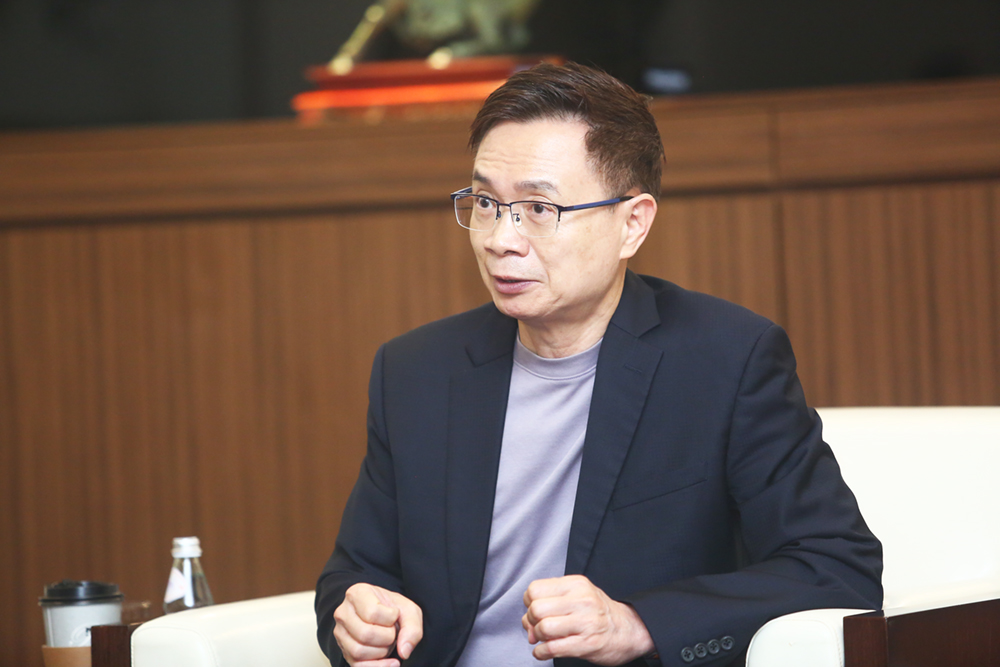
The Ministry of Economic Affairs expects the output value of the automotive electronics industry to reach more than 19 billion US Dollars by as early as 2025. Thus, driving not only the automotive industry but also related sectors such as vehicle electronics. With the growing trend of electric cars and government initiatives, the output value is likely to double by 2025. When factoring in complete vehicles and components, it could reach more than US$12 billion.
Key systems of electric vehicles encompass batteries, motors, electronic control, and charging systems. Taiwan’s electric vehicle industry involves various manufacturers contributing in materials, components, modules, subsystems, and system integration. Within the realm of complete vehicles, businesses are expanding offerings, including electric scooters, electric passenger cars, electric commercial vehicles, and electric buses.
The Taiwanese government is actively promoting the comprehensive electrification of public transportation by 2030, particularly focusing on buses. This initiative encourages Taiwanese manufacturers to deepen their involvement in the development of electric bus components and systems. Thus, incorporating smart and automated features to enhance bus safety.
Moreover, Taiwanese manufacturers possess the capabilities for designing and manufacturing key components and systems for various types of electric vehicles, offering solutions across different levels of the supply chain.


